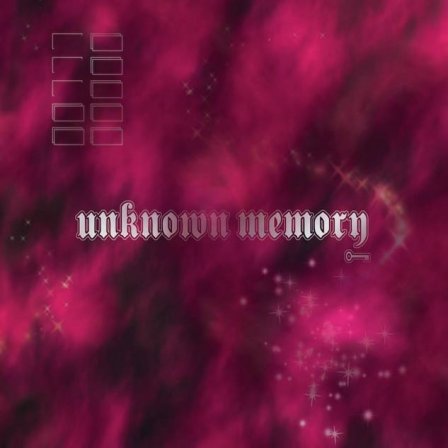Yung Lean (formerly Yung Lean Doer) is a Sad Boy. That isn’t so much a literal or definitive label — a representation of his mood or psyche — as it is a magnificent bit of branding. Sad Boy is a trademark. It’s a stamp being used (unknowingly) by a couple of young Swedes to claim ownership of an aesthetic cobbled together by browsing YouTube for context clues on weird rap’s DIY generation. Yung Lean is a product of modern rap internet culture, a meme rapper replicating Spaceghostpurrp and Main Attractionz, and he has built a cult-like following being something of a rap spoof.
When Lean first popped up, it was like watching a neophyte hop into a rap simulator. He wasn’t so much a rapper as he was an emulator cloning every style he stumbled upon to compensate for the absence of his own. (On his Reddit AMA, a commenter asked what he was most proud of. His response: “my internet search history.”) When “Ginseng Strip 2002” went viral last year, he was just a listless youngster parroting rap clichés with a loose grasp on the English language and an even looser grasp on rap jargon and black culture, but despite that, there was clearly something interesting about this gawky white teen — from a country where the only charting rap song right now is Iggy Azalea’s “Black Widow” — who discovered America’s weird underground scene from across the pond by way of a WLAN connection.
These days, Yung Lean is pretty far removed from that awkwardly stiff effigy, though not completely. He still clumsily dawdles through phrases, and in his videos, he still throws around “rapper hands” like he hasn’t quite gotten the hang of it yet, but he’s evolved past simply mirroring his subjects. It’s almost like he’s learning how to rap all at once, taking infantile steps picking up a craft that’s basically its own language, in his second language. Yung Lean’s sad rap isn’t strictly imitation; it’s acclimation. This isn’t so much cultural appropriation as it is cultural assimilation.
What gets lost in translation is the sincerity. At his least communicable, Yung Lean’s heavily-auto-tuned-yet-still-deadpan delivery can be off-putting to those looking for strict adherence to rap principles, principles he hasn’t inherited as an outsider. To that end, Unknown Memory is a raw look at the kind of rap that can be made when completely detached from rap institutionalism, and it’s a fascinating interpretation. It’s cloud rap precipitating promethazine on NES Hyrule-like soundscapes.
The sleepy-eyed Sad Boy manages to emerge from the shadows of those he admires and step into his own on his first full-length, lining wavy, celestial arpeggios with a blank, uninitiated sort of exegesis; if rap is hip-hop scripture, then he has skipped the old testament entirely, studying only the gospels he deems fit. He finds comfort in the pitchy singsong that surfaced from Atlanta’s underbelly in recent years straying from Unknown Death 2002’s basic, graceless rapping, but maintaining its swag core. There are moments on Unknown Memory when his aesthetic perfectly aligns with his talent and you understand the hype: his melody carries effortlessly through the overlapping witch house synths on “Ice Cold Smoke;” he raps with a tighter flow and a new measure of enthusiasm on “Blinded;” and he puts it all together on the 16-bit-esque “Yoshi City,” his strongest song since 2013’s stunning “Kyoto.”
Even when Yung Lean is at his best, though, the key to Unknown Memory’s magic, and the entire aesthetic for that matter, is the deeply emotive production. FACT called his debut mixtape the “epitome of sad rap,” but Yung Lean himself isn’t really that sad. Where the real sadness lies is behind the ethereal synths of dynamic production tandem Yung Gud and Yung Sherman, who score the entire affair. They are as heavily indoctrinated in web rap culture as he is. The influence of Clams Casino (via Lil B) is felt throughout. “Don’t Go” is 6 Kiss production on steroids. “Volt” channels 2011’s Rainforest EP, dark and brooding. You could slip Clammy Clams’ “Melthru” anywhere on this record without missing a beat. The duo is completely in tune with the pulse of a generation of youths getting their music off Tumblr, and Lean taps into that to make a record for kids who have no idea who KRS-One is but who love The BasedGod, transitioning back and forth between rap commentariat and active participant.
Yung Lean is almost performance art pantomiming his adoptive genre’s tropes, but Unknown Memory also taps into something novel; it’s an innocent, wide-eyed take on the amalgamation of A$AP Rocky and Travi$ Scott — the aesthetic aggregators — that seeks to comprehend, not to exploit. Fittingly, “Ghosttown,” which features Scott, is one of the tracks that best showcases all he has learned about rap in his brief time rapping: he’s finally piecing together his own identity out of the bits he’s acquired from observation. He’s a quick study, and what gets lost in his nonsensical non-sequiturs is just how self-aware he is and how much he’s picking up. “Show up last with the biggest bands/ Least love, with the biggest fans/ I’m a weirdo so to the weirdoes I give back,” he raps on “Monster.” Yung Lean’s Unknown Memory is weird rap using web rules of attribution to navigate a finite rap world while speaking directly to the kids looking to plug in for the sake of escapism.


